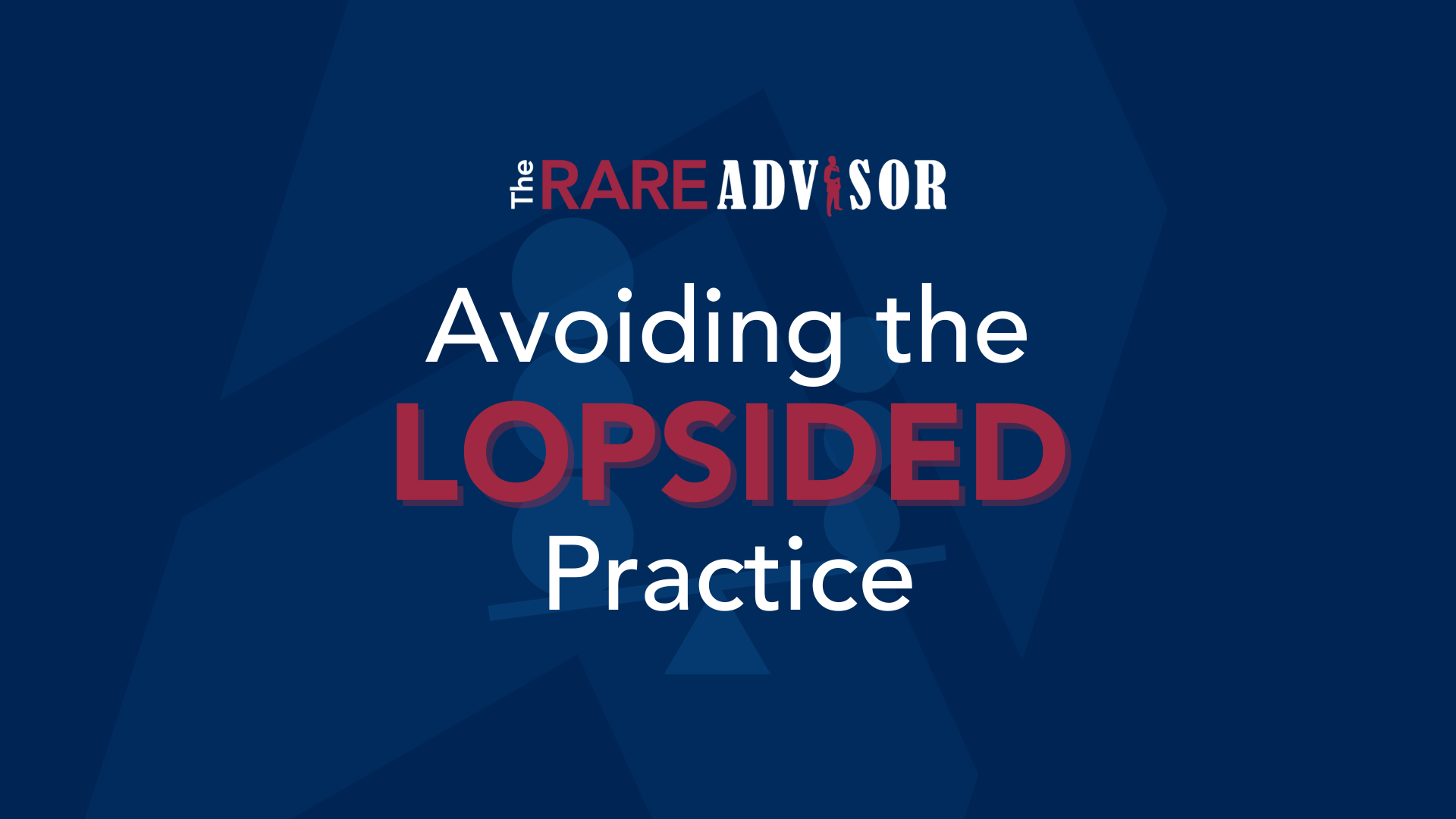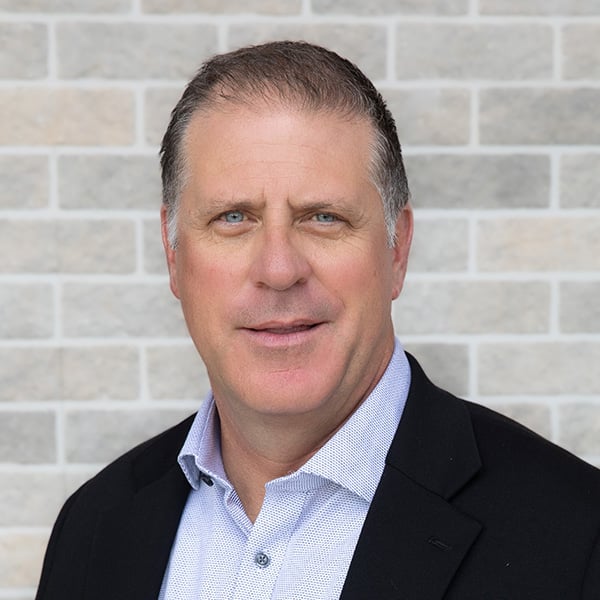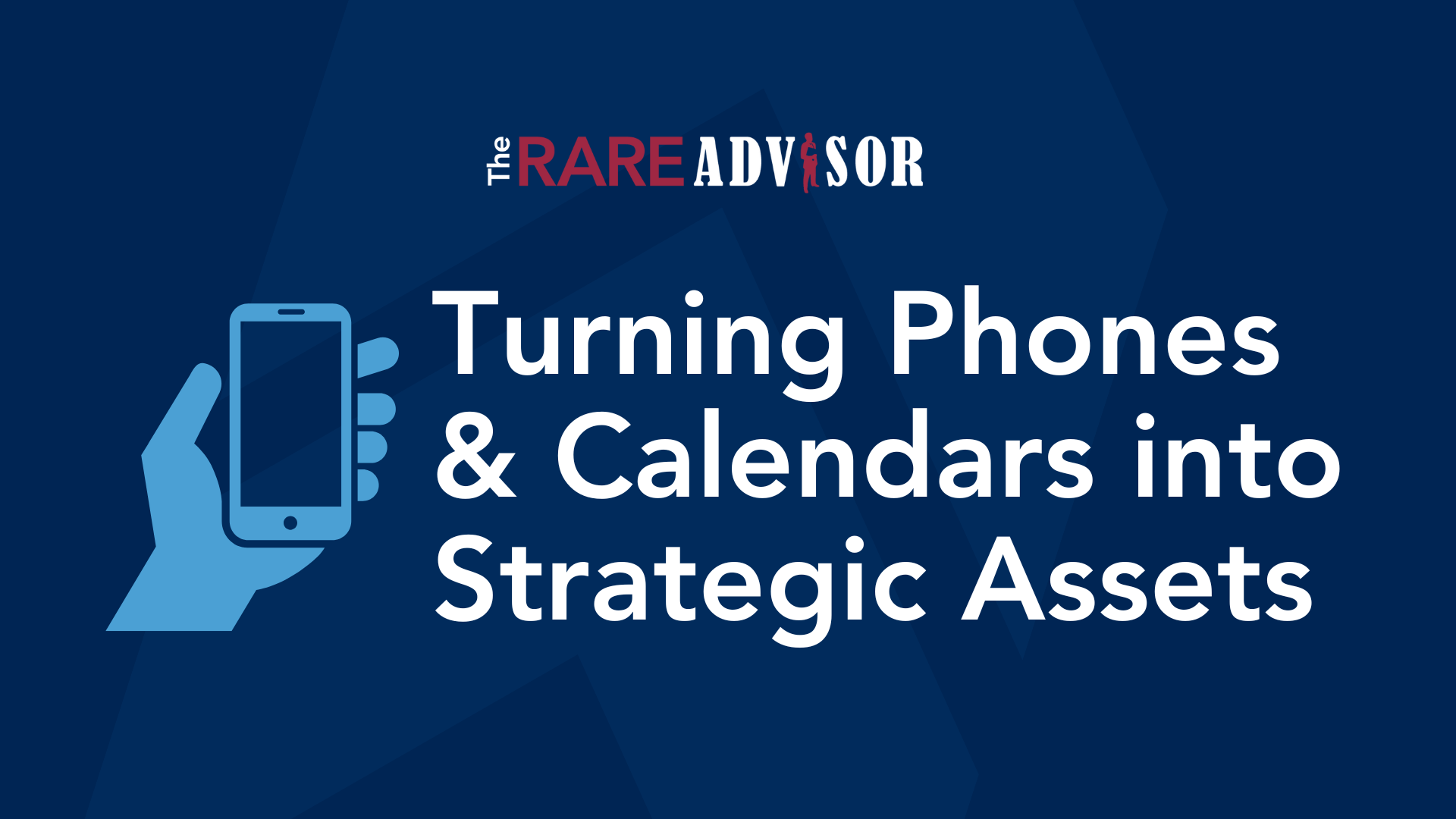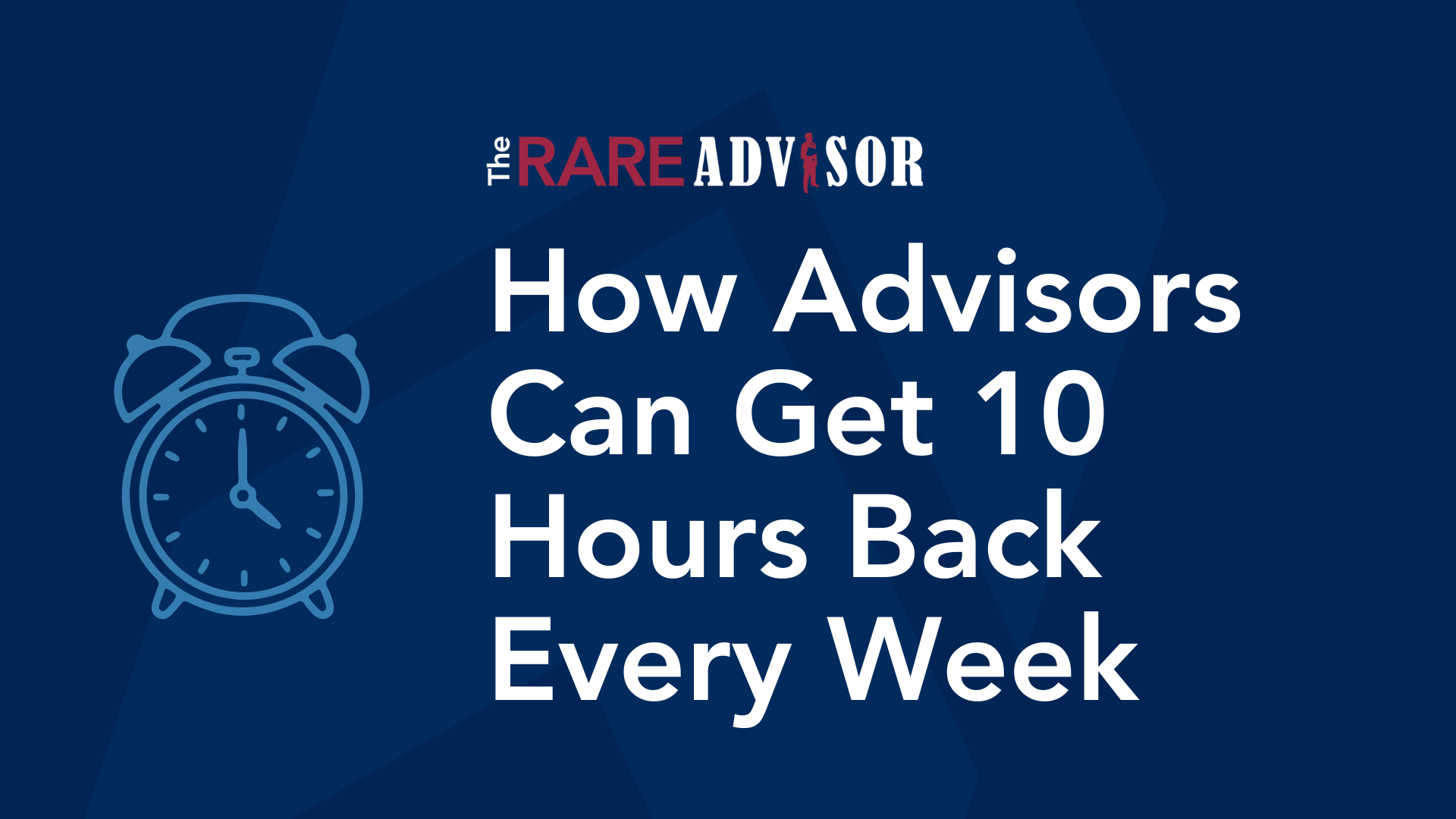The RARE Advisor: Avoiding the Lopsided Practice

The odds are pretty significant that you actually have a lopsided practice… and you may not even realize it! In this episode of The RARE Advisor, we’ll uncover this and talk about how much more profitable you can be going forward.
Did you know that the name of this series, The RARE Advisor, is an acronym? RARE stands for recurring and repeatable events. Now, if you're focusing on the RARE concept as it relates to implementing processes in your business, you can create an assembly line within your practice , if you will. You know that when you push these buttons and you pull these levers, this is what's going to come out the other end. This is how prospects are processed. This is how they end up in the funnel. This is how we move them through an appointment process. This is how we then engage them as clients of the firm. This is how we then go through the planning and asset gathering process, and right on down the line.
Now with all of that being said, it is equally important to make sure that you do not have a lopsided practice. It costs you on your P&L statement, and it also costs you on your balance sheet. What do I mean by that? Well, from a P&L statement standpoint, you're leaving money on the table. You are not operating the business effectively and efficiently so that you can truly manage all of the assets. You are running a lopsided practice if you do not have balance between your recurring transactions/revenue/assets versus your transactional/commissionable/upfront compensated vehicles. Your practice, if you're trying to value it based on revenue, would be a two and a half times multiple on recurring revenue. So that's your assets under management and your recurring fee revenue (not planning fee revenue). And then on the transactional side or the commissionable side, it would be a one times multiple. So the recurring versus transactional, or the AUM versus the commissionable, you want to think of kind of bookends in terms of what keeps you from being lopsided. In other words, I don't want to be 100% one way or the other way. And that's what catches a lot of people off guard. They just assume because there's a higher multiple valuation factor on recurring revenue, that they want to be 100% recurring revenue. And I will argue with you two things. Number one, that lopsidedness will cost you. And not only will it cost you because you're missing some upfront commissionable opportunities, which tend to pay higher. But also, you're missing out on additional assets under management that you could have collected if you were properly using commissionable products to stage for the gathering of the assets under management.
First, let's talk about the bookends. I would say a bookend for you to consider is like 80% recurring 20% commissionable, and swinging the other direction to 40% recurring 60% commissionable. Now, those are some wide bookends, and many people are going to be in that 50%-70% range on recurring and 30%-50% on commissionable. But you need to understand that when you're working your way into the asset under management side of the business, obviously, it's going to be skewed more heavily because dollar for dollar it will weigh quicker on a commissionable side. And the longer you're in the business, you will build a mountain because every year you're adding more and more assets under management and the mountain keeps getting bigger. But on the commissionable side, it's more like a mouse on a wheel. I have to keep running to keep it going every year, I'm starting over from scratch again. So on the one hand, I've got a train running down the tracks. And every year I'm adding another car to it, and my train just keeps getting bigger and longer. That's assets under management. On the other side, I've got a sports car. I fire it up, I put gas in a tank, I step on it, and there I go. Soon as I run out of gas at the beginning of the year, I have to do it all over again. And that's the difference, if you will. Mentally speaking now, the longer you're doing that, the more it's going to skew towards the assets under management and the less impact any given commissionable transaction is going to have on your overall revenue.
Now putting that aside, I want to talk about the staging process. Commissionable products - most specifically fixed index annuities - are great staging vehicles. And what I mean by that is, when I'm creating a portfolio - especially for someone who is rapidly approaching retirement or is in retirement - I need to create the portfolio in a way that I can essentially guarantee them income during their retirement. I'm going to use blocks of time. I'll have one staging vehicle that's going to cover me for the first five years of income. And then I'll have another staging vehicle for the next five years. So it's going to be deferred for five and then engaged for five. And then I'll have another one that's going to be deferred for 10 and engaged for five, and right on down the line. Once I stack myself in there with these staging vehicles, so that I've got 15, or 20, or 25 years worth of retirement income essentially guaranteed, that frees up time to go in and make those assets under management stand up and sing. And with that kind of time on my side, I know I'm gonna get the performance that I need. So, now I can use the staging vehicles to get all the assets under management. If I didn't stage it, if I didn't go through that process I just spoke about, I'm probably not getting all of these assets over here.
So, when somebody has a practice and they say to me that they are 100% AUM, or 100% fee income, or 100% recurring revenue, that actually sets off alarms to the fact that they're missing an opportunity. They're missing many opportunities with all of their clients. Now, if you're skewed the other direction and you're 100% commissionable, that's a bigger problem, right? I want to have balance, I want to avoid being lopsided. What I want is balance with a tilt toward recurring.
Now, if you're interested, we have a new, free report called the 'Advisor's 12-Step Reset for Predictable Growth, Value & Lifestyle'. It's a smooth, 12-step process that I've uncovered and discovered over my 35+ year journey in this industry. And it's designed to generate a predictable practice with automated revenue and lifetime rewards.
--
The RARE Advisor is a business model supercharged by Recurring And Repeatable Events. With more than thirty years of working with and coaching successful advisors, host Mike Walters (along with other leaders in the industry), discusses what it takes to grow a successful practice. With the aim of helping financial professionals and financial advisors take their business to the next level, Mike Walters shares insights and success stories that make a real impact. Regardless of the stage of your practice, The RARE Advisor will provide thoughtful guidance, suggestions for developing systems and processes that work, and ideas for creating an authentic experience for your clients.
The RARE Advisor is also a podcast! Subscribe today via Apple Podcasts, Google Podcasts, or your preferred podcast listening service for easier on-the-go listening
Author Info

Mike Walters is the Chief Executive Officer (CEO) of USA Financial, leading the firm since its inception in 1988. Mike is committed to...
Related Posts

Access by Design: Turning Phones and Calendars into Strategic Assets
In this episode of The RARE Advisor, host Aaron Grady and practice management consultant Allan Oehrlein continue their discussion on time allocation by exploring what comes next: operationalizing structure across the entire advisory team. They break down why the phone is the “front door” to the firm and the calendar is the “engine room,” and how elite practices use standardized phone scripts, the strategic power of the word “unavailable,” intentional scheduling rules, and team empowerment to build consistency, capacity, and trust. Aaron and Allan outline how designed access—not unlimited access—creates scalability and a stronger client experience, while reducing reactivity, burnout, and advisor bottlenecks. They also offer practical challenges advisors can implement immediately to redesign their phone and scheduling processes in ways that elevate both team culture and enterprise value.

The Psychology Behind Your CTA: Why Prospects Don’t Click “Book a Call”
In this episode of Financial Advisor Marketing Playbook, Mark Mersman breaks down the real psychological barriers that stop prospects from clicking “book a call” on an advisor’s website—and how small language and design changes can dramatically improve conversions. You’ll learn practical, compliant fixes including softer CTA language, expectation statements, empathy‑based messaging, simplified design, and reassurance techniques that lower emotional friction. If you want a website that encourages prospects to take the first step confidently, this episode delivers actionable guidance advisors can implement immediately.

How Advisors Can Get 10 Hours Back Every Week
In this episode of The RARE Advisor, host Aaron Grady and USA Financial Pareto coach and Practice Management Consultant Allan Oehrlein dive into time allocation as a core lever for advisory success. They unpack the biggest time drains—email, unsolicited calls, and open-door interruptions—and lay out a practical framework for calendar rebalancing that starts with personal time, management time, client appointments, dedicated communications windows, “work on the business” time, and high-impact growth activities. With real-world stories showing how advisors shift from reactive days to structured weeks (and even reclaim Fridays), Aaron and Allan share easy-to-implement tips: color coding calendars, scheduling buffers, daily huddles, and call/appointment protocols. If you’re ready to audit your calendar, define your ideal week, and create structure that truly liberates your practice, this conversation is your next step.

Access by Design: Turning Phones and Calendars into Strategic Assets
In this episode of The RARE Advisor, host Aaron Grady and practice management consultant Allan Oehrlein continue their discussion on time allocation by exploring what comes next: operationalizing structure across the entire advisory team. They break down why the phone is the “front door” to the firm and the calendar is the “engine room,” and how elite practices use standardized phone scripts, the strategic power of the word “unavailable,” intentional scheduling rules, and team empowerment to build consistency, capacity, and trust. Aaron and Allan outline how designed access—not unlimited access—creates scalability and a stronger client experience, while reducing reactivity, burnout, and advisor bottlenecks. They also offer practical challenges advisors can implement immediately to redesign their phone and scheduling processes in ways that elevate both team culture and enterprise value.

The Psychology Behind Your CTA: Why Prospects Don’t Click “Book a Call”
In this episode of Financial Advisor Marketing Playbook, Mark Mersman breaks down the real psychological barriers that stop prospects from clicking “book a call” on an advisor’s website—and how small language and design changes can dramatically improve conversions. You’ll learn practical, compliant fixes including softer CTA language, expectation statements, empathy‑based messaging, simplified design, and reassurance techniques that lower emotional friction. If you want a website that encourages prospects to take the first step confidently, this episode delivers actionable guidance advisors can implement immediately.

How Advisors Can Get 10 Hours Back Every Week
In this episode of The RARE Advisor, host Aaron Grady and USA Financial Pareto coach and Practice Management Consultant Allan Oehrlein dive into time allocation as a core lever for advisory success. They unpack the biggest time drains—email, unsolicited calls, and open-door interruptions—and lay out a practical framework for calendar rebalancing that starts with personal time, management time, client appointments, dedicated communications windows, “work on the business” time, and high-impact growth activities. With real-world stories showing how advisors shift from reactive days to structured weeks (and even reclaim Fridays), Aaron and Allan share easy-to-implement tips: color coding calendars, scheduling buffers, daily huddles, and call/appointment protocols. If you’re ready to audit your calendar, define your ideal week, and create structure that truly liberates your practice, this conversation is your next step.

